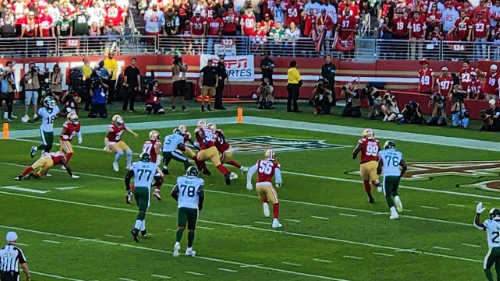What seems like amazing casting on paper starts to crumble just by putting Aaron Pierre and John Stewart side-by-side: Aaron Pierre appears to be a few shades lighter than John Stewart misrepresenting the iconic character. Recently, Aaron Pierre, who some might recognize from the Netflix movie “Rebel Ridge,” was announced to play John Stewart in the DC Studios and HBO series, “Lanterns.” The colorism in Hollywood is achingly apparent and why studios still choose to partake in it raises the questions of diversity and inclusion in media.
Colorism is the prejudice/discrimination against people with darker skin tones in favor of lighter skin tones, usually in the same race or ethnic group. The Oxford English Dictionary added the word into the list in 2015, but its effects have gone on for way longer than that and still are in the entertainment industry.
Colorism in the United States traces back to slavery, where skin color was used as a means of separation and distinction between slaves. House slaves, who usually were of lighter complexion as a result of a forced relationship between a female slave and her master, would work inside of the house instead of having to deal with the harsh sunlight field slaves had to endure.
House slaves were usually taught to read and write, while field workers had little respite from the extreme demands of their slave masters. Slaves with darker skin were typically stuck outside toiling in the fields. Of course, both were enslaved so there was not a real winner in this scenario, but this goes to show that the way of thinking that lighter skin is superior to darker skin in any shape or form has been solidified throughout history for black people.
It is important to understand that no one in their right mind is saying that Aaron Pierre and other light skin actors are not “black” enough to play black characters. Being black is a thing that many people like putting in a box and anything outside of what they expect is not accepted. No one can define what it mean to truly be black.
What should be said, however, is the acknowledgement that colorism plays a substantial role in Hollywood. The act of denying it is useless—as shown by Neal Adams, the creator of the character John Stewart, who once mentioned in an interview on the importance of the Green Lantern being dark skinned.
While some people pushed for John Stewart to be lighter, Neal Adams insisted on making him dark. For James Gunn, the CEO of DC Comics, to cast a non-dark skinned actor is just completely disregarding Adams’ wishes and also adding to the list of times dark skinned actors were once again neglected and overshadowed by another actor of lighter complexion.
There are numerous examples of colorism affecting the official casting. Just with the novel turned movie “The Hate U Give,” the main character Starr Carter, the girl on the book cover, is explicitly dark skinned. However, the actress they decided should play her went to Amandla Stenberg, and the contrast between the two is excessively noticeable. Other examples include Halle Berry as Storm in the “X-Men” series and Zoe Saldana controversially depicting Nina Simone in “Nina” (2016), where she wore a prosthetic nose and darker makeup just to mimic Nina’s appearance.
Viola Davis herself has said that she felt like she lost roles due how dark her skin is. The issues that colorism cause is that not only are films able to accurately represent audiences, but dark skinned actors are not awarded the same opportunities as others.
Hollywood tends to gravitate towards a specific kind of black actor that fits into the mold of what’s considered tolerable to the general public. Instead of featuring Afrocentric features that are representative of the majority of those who are of African descent, Hollywood studios would rather push what is conveniently attractive: smaller lips and noses alongside lighter skin.
In 2022, the amount of employed black actors was 12.8% in a workforce of 33,865. If that is the case, why does Hollywood constantly refuse to cast any that fail to pass the paper bag test (a colorist practice that compared one’s skin tone to a paper bag and if they were darker than it, they were denied access into certain clubs and social organizations)?
Obviously, there is not a talent issue— actors with darker complexions such as Trevante Rhodes, Lupita Nyong’o and Damson Idris were given the opportunity to showcase their skills and showed to everyone that there is a place in cinema for people with darker skin.

(RZ’Naisa Self)
There are plenty of talented dark skinned actors, but Hollywood just does not want to cast them. In not casting dark skin people in favor of lighter skin, Hollywood is practically withholding the representation of people seeing themselves portrayed on screen.
Taking a character and essentially making their skin tone brighter by having a lighter skin actor play them does a disservice to the aspect of what makes the characters who they are also to the actors who did not have the chance to play them. When studios only cast actors who fit into their perception of what black people should look like, those who have dark complexions only end up getting affected negatively.
Colorism in Hollywood is a tale as old as time; even though there have been recent movie castings that show that colorism may not be as prevalent as it used to be, Aaron Pierre’s casting as John Stewart just goes to show how much Hollywood needs to improve on.
First action of business? Leave a dark skinned role for a dark skinned actor.













































































